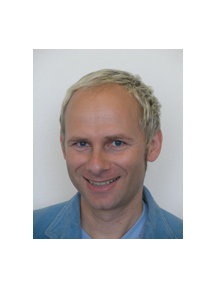
Jens Förster, a high-profile social psychologist, has agreed to retract multiple papers following an institutional investigation — but has also fought to keep some papers intact. Recently, one publisher agreed with his appeal, and announced it would not retract two of his papers, despite the recommendation of his former employer.
Last month, the American Psychological Association (APA) announced it would not retract two papers co-authored by Förster, which the University of Amsterdam had recommended for retraction in May, 2015. The APA had followed the university’s advice last year and retracted two other papers, which Förster had agreed to as part of a settlement with the German Society for Psychology (DGPs). But after multiple appeals by Förster and his co-authors, the publisher has decided to retain the papers as part of the scientific record.
Many voices contributed to the discussion about these two papers — in November, 2016, the University of Amsterdam announced it was rejecting the appeal by another co-author on both papers, Nira Liberman, based at Tel Aviv University in Israel. The following month, Tel Aviv University announced that it believed the articles should not be retracted, based on its own internal review.
The APA reviewed the various recommendations, according to last month’s announcement:
During its Spring 2017 meeting, the APA Publications and Communications Board discussed a second appeal to the retractions from Dr. Liberman and Dr. Förster, on the basis of the Tel Aviv University recommendation. The Publications and Communications Board is not a formal evaluating body, so relies on the host institution for any final decision regarding whether or not to retract an article when the author(s) do not agree to the retraction. In this case, there are two host institutions for two of the co-authors, issuing different recommendations. On that basis, APA Journals will not be retracting the two articles in question. They will remain as published.
“Distancing from experienced self: how global-versus-local perception affects estimation of psychological distance” has been cited 84 times since it was published in 2009 by the Journal of Personality and Social Psychology, according to Clarivate Analytics’ Web of Science — 28 times since 2015. “Preparing for novel versus familiar events: Shifts in global and local processing” has been cited 43 times since it appeared in the Journal of Experimental Psychology: General in 2009, nine times since 2015.
According to a report from an expert panel convened at the request of the board of the University of Amsterdam, for both of these papers, “the evidence for low scientific veracity of this publication is considered strong.”
Liberman told us:
…it is my opinion that the UvA report contains no evidence for low scientific veracity in the papers in question. An expert in statistics, who was asked by the rector of Tel Aviv university to look at the two APA papers in thought that the UvA report fails to provide evidence for “low veracity”. In fact, it is my opinion that this report does not contain such evidence about any of the papers it examined beyond the three by-now-retracted papers by [Förster], which were already flagged by the anonymous complainant, and which were indicated as problematic also by the German association of psychology.
We Förster; the email listed as his contact information on his website bounced.
An APA spokesperson told us the letter was addressed to the co-authors and their institutions, and the journals will not post a notice alongside the articles about their decision:
APA has a policy to post notices along with retracted articles; as these two articles will not be retracted, there will be no associated notice.
On his blog, Förster wrote that these two articles are among five that University of Amsterdam recommended for retraction, but remain published:
In this letter I would like to inform you that all retraction requests suggested in 2015 by my former employer, the University of Amsterdam (based on a report written by Carel F.W. Peeters, Chris A.J. Klaassen, and Mark A. van de Wiel in 2015, in the following PKW-report) were not accepted by the editors of the respective journals.
All papers remain published, none of the papers will be retracted.
He adds:
I would like to thank all friends and colleagues who supported us through this entire, nerve racking, and energy-consuming phase. [My colleagues and I] indeed profited from feedback from the best scientists of our field and beyond and we are heavily indebted to their persistence in motivating us to fight for justice.
We asked [University of Amsterdam] to remove the faulty [investigation] report from their website in September 16 2016, because it massively damages our reputation. We have not yet heard from UvA. We hope that UvA will now start rethinking its behavior.
Like Retraction Watch? Consider making a tax-deductible contribution to support our growth. You can also follow us on Twitter, like us on Facebook, add us to your RSS reader, sign up on our homepage for an email every time there’s a new post, or subscribe to our daily digest. Click here to review our Comments Policy. For a sneak peek at what we’re working on, click here.